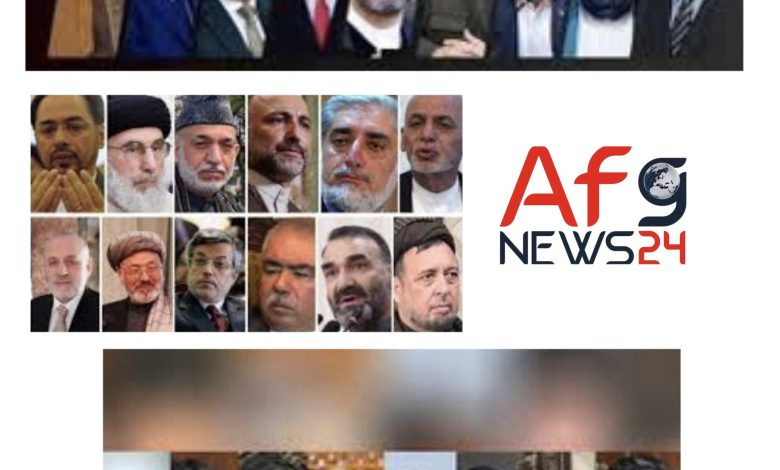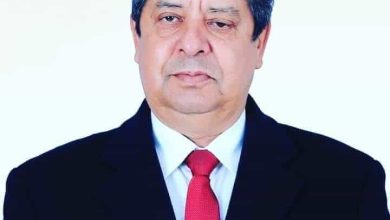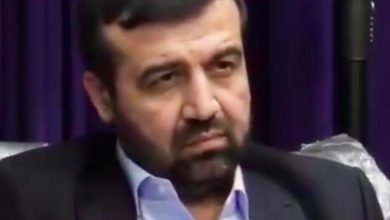
The ambiguous fate of the former political leaders of Afghanistan
After about a year and a half since the Taliban took control of Kabul, no country has yet recognized the caretaker government of the Taliban, but still, the process of handing over the Afghan embassies and diplomatic missions to representatives affiliated with the Taliban government continues.
So far, Afghanistan’s political missions in Pakistan, Turkmenistan, China, Iran, Turkey, Russia, Qatar and recently the Afghan consulate in Abu Dhabi have been entrusted to Taliban representatives. According to some reports, some political agencies of Afghanistan, which are managed by diplomats appointed by the government of Ashraf Ghani, also work in coordination with the Ministry of Foreign Affairs of the Taliban government.
At the same time, the hopes for the formation of a “broad-based government” in Afghanistan are fading day by day, and the Taliban leaders are not showing flexibility and readiness in this regard. Predictions were that by not handing over the diplomatic centers of Afghanistan to the representatives of the Taliban, the newly established government of the Taliban, under pressure and political isolation, will give in to the formation of a comprehensive government, but handing over one after another embassies and consulates to the representatives approved by the Taliban invalidated this hypothesis. .
On the other hand, the political leaders who come to power outside of Afghanistan do not have the necessary political cohesion to exert pressure on the Taliban government, nor have they been able to present a codified and comprehensive plan during this period.
It can be seen in the statements and declarations of these political leaders that they expect other countries to put pressure on the Taliban on their behalf. But as the bad end of the republic and the developments of the last one and a half years showed, the world does not pay attention to this issue and will not repeat what it did in the first meeting.
The Taliban’s interaction with neighboring countries and the region is expanding, and international organizations regularly send cash aid to Kabul. It seems that the Taliban government is not only not isolated internationally, but has also managed to accept its sovereignty over the people internally.
Considering this situation, one of the most important debates is the continuation of the one-party rule of the Taliban and the fate of the former political leaders outside of Afghanistan. There are many examples in the political history of Afghanistan that Afghan leaders have never been able to return to Afghanistan after fleeing their homeland.
For example, Amanullah Khan died in exile in Italy, Zahir Shah and his family were stripped of their citizenship and returned to the country in a rare historical opportunity after 29 years, Aslam Watanjar, the former Minister of Defense, died in Ukraine and was buried there, and party leaders People’s democrats who ruled Afghanistan for many years died in migration and exile.
Therefore, with this historical record, it seems that a bitter fate awaits the political leaders who fled from Afghanistan. The former political leaders of Afghanistan, who have mostly taken refuge in Turkey, believe that the current situation inside Afghanistan is “temporary” and there may soon be an opportunity for them to return to the country victoriously, but the way of interaction between regional countries and international institutions with the caretaker government of Afghanistan , shows another perspective that does not match the analysis and perception of foreign political leaders.
The four decades of crisis in Afghanistan caused by the communist coup, the occupation of Afghanistan by the former Soviet Union, the period of Jihad and then the resistance, created an environment for the activities of some people, which brought them to status and wealth. The peak of these people’s use of their position was in the last 20 years. Even the technocrats who came to Afghanistan after 2001 were attracted by the windfall and wealth.
After the republic and when the Taliban rules Afghanistan, both groups of Afghan leaders and politicians are waiting for a miracle outside of Afghanistan to reconnect to the circle of power and wealth. But the existing perspective of the developing countries’ interaction with the Taliban government shows that it is unlikely that these two groups of foreign leaders and politicians will get another chance.
Developments of Afghanistan survey




